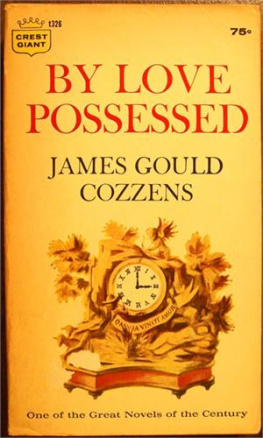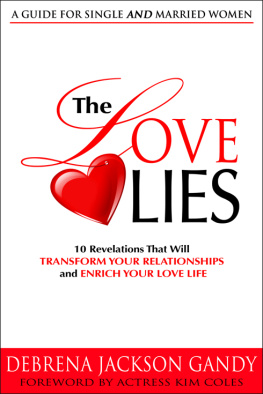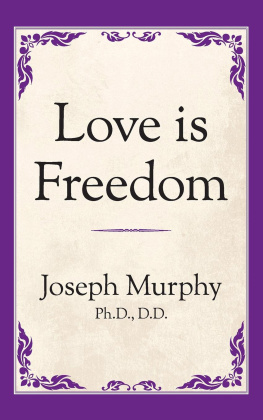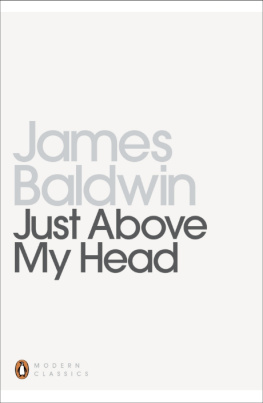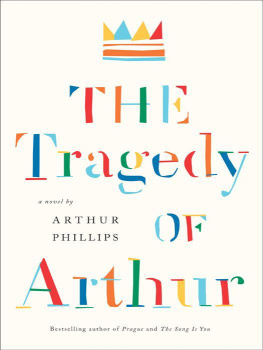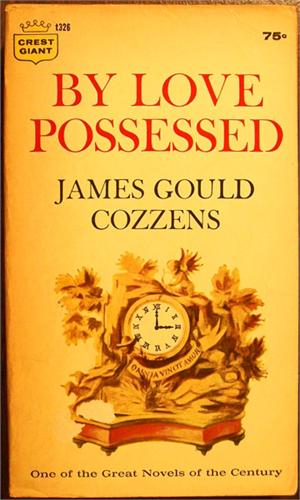
JAMES GOULD COZZENS
BY LOVE POSSESSED
Thereby to see the minutes how they run
How many make the hour full complete,
How many hours bring about the day,
How many days will finish up the year,
How many years a mortal man may live.
HENRY VI
First published by Longmans, Green 1957 Published in Penguin Books 1960 Reprinted 1961
Copyright James Gould Cozzens, 1957
CONTENTS
Part One DRUMS AFAR OFF
ONE
L OVE conquers allomnia vincit amor, said the gold scroll in a curve beneath the dial of the old French gilt clock. To the dial's right, a nymph, her head on her arm, drowsed, largely undraped, at the mouth of a gold grotto where perhaps she lived. To the dial's left, a youth, by his crook and the pair of lambs with him, a shepherd, had taken cover. Parting fronds of gold vegetation, he peeped at the sleeping beauty. On top of the dial, and all unnoticed by the youth, a smiling cupid perched, bow bent, about to loose an arrow at the peeper's heart. While Arthur Winner viewed with faint familiar amusement this romantic grouping, so graceful and so absurd, the clock struck three.
The struck notes succeeded themselves in the quiet room with a pleasant silver tone. When his mother got up, Arthur Winner, too, got up. Left alone, he remained standing, thoughtful in a pose of habit. He held his tall, big-limbed body, whose suit of tan linen was rather wrinkled by the hot day's wearing, erect. He carried his head, in its good proportion made more distinguished by being now for the most part bald, at a reflective anglecomposed face lifted a little; strong-boned chin raised, as though he scanned, scrutinous and unhurried, the middle distance; big beaked nose up, as though to scent the air. On the air hung, in fact, a faint spiciness, a barely apparent fragrance of potpourri given off by a Canton jar on a coffee table in front of the couch. The room was mostly shadowed. Big maples on the lawn grew close, shading the house; yet the September afternoon's lowered sun had now begun to slant an occasional beam through their branches. The tall screened windows, open on the warm day, admitted these declining rays. Bright, they came and went as the leaves stirred, casting themselves across the polished dark floor.
Sight of the old gilt clock had made Arthur Winner think of his fatherindeed, the room was full of such mementoes. A little-disturbed museum, its collection, informal and unassuming, preserved evidences of that many-sided mind, of the grasp and scope of interests, of perceptions so unobtrusive as to be nearly private, of quiet amusements and quiet enjoyments. Seeking Arthur Winner Senior's monument, you could look around you. You could ask yourself, for example, how many lawyersor, to give the point proper force, how many small-town lawyers, born and brought up in a fairly-to-be-called rural county seat like Brocton would, fifty or more years ago, have had the interestlet alone, the taste, the eyeto pick over, unaffected by then current ideas of what was fine or beautiful, of what was rare or valuable, the then next thing to junkthe secondhand, the old-fashioned, the discardedand select, exchanging a few dollars for them, exactly the items that the antique trade (at that time hardly born) was going to look on as prizes half a century later. Would you guess one in a thousand, or one in ten thousand?
From the room beyond, Arthur Winner heard his mother's movements. She was in search of a list she had made of the things she meant to speak to him about, things she did not want to forget. That she should then forget where she put the list of things not to forget had, she was quite aware, touches of both humour and pathos. Liking the one in connexion with herself as little as the other, his mother indignantly summoned her forces. She was compelling herself to an organized effort of recall, a determined methodical review of what she had been doing, on the not-bad chance that she would be shown suddenly where the list must be. As, in her seventies, had become her practice, she spoke aloud, relating what she could remember, interpolating comment as comment seemed to her called for.
She said loud enough for Arthur Winner to hear: 'I know I had it just before Maud went out. Where was I? Upstairs? I don't think so. And she wanted me to speak to Arthur about her bonds. And I put that down' Her voice was carefully, cultivatedly clear; yet from time to time some slightest involuntary tremble of the old muscles of the larynx put into the distinct words a hint of quaver. She said: 'It's Luella's afternoon off. So she came in to ask me if she could bring me tea before she left who would want tea at half past two? Still, we're fortunate to have her; though she's not very clean.' Speaking still louder, meaning him not to fail to hearperhaps a realization that the clock had struck a moment ago prompted hershe said: 'If I don't find it, he'll start saying he has to leave; and I might not see him again for days'
With compunction, Arthur Winner must realize that his mother stated there, advertently or not, one truth about these lists she usually had ready for him, about the innocent, even perhaps unconscious stratagem. The more things she noted down, made sure she would speak of, the longer she could legitimately keep him. That she might forget something important was not the danger; if she did, when she remembered, she had only to pick up the telephone. The danger was that, his duty too quickly done, the too-few things coming to her mind at the moment all mentioned, taken care of, he would have no reason to stay. He would be going; when, if she'd planned better, he could have been caused to remain longer. She called: 'Do you hear me, Arthur?'
'Perfectly,' Arthur Winner said.
'You didn't say anything. I suppose it means you're in a hurry.'
'Not particularly,' Arthur Winner said. 'I told Clarissa I'd try to be out by five'
'Well, you must, then! Give her my love. And Ann. Ann came to see medid I tell you?one day last week. We had a nice time. Suddenly, she seems quite grown upmore than fifteen, I mean. But I would be glad if you could persuade her not to call me Granny. That's quite new. I imagine she got it from a friend, or read it in a book. She's at an imitative age. Now, what was I'
Arthur Winner said: 'You're looking for your list, Mother.'
'Don't be impertinent, Arthur,' she said, almost sharply. 'I've not entirely lost my wits, whatever you may think. Now, I believe I did leave it upstairs'
Arthur Winner said: 'Would you like me to look?'
'No. How would you know where to look?' He could hear her steps pattering rapidly into the hall; and he said: 'Don't rush around. It's not good for you. Take your time.'
She answered: 'All very well to say that, but how can I take my time when you're in such a hurry, when I know you'll say you have to go in a minute?' However, reaching the stairs, she began to mount them with careful slowness. She called out: 'Your father was never in a hurry. He said that when you saw a lawyer in a hurry you saw a man who didn't know his business. You should be more like him.'
'I believe that,' Arthur Winner said.
The remark was, indeed, his father's; yet this use might seem to show that some quality of serious directness in his mother's thought, her natural way of viewing things in terms of yea and nay, white or black, so or not so, made her miss his father's whole meaningthe dry overtone; the sidelong ironic look at the law's infinite utilizable resources of obstruction and postponement, and the wily, knowing lawyer's habit of profiting from them. Arthur Winner said: 'The truth is, I'm only now starting to see how well father knew his business. He and Noah Tuttle made quite a firm in the old days. Getting old myself, I can realize how good they were.'
Next page
